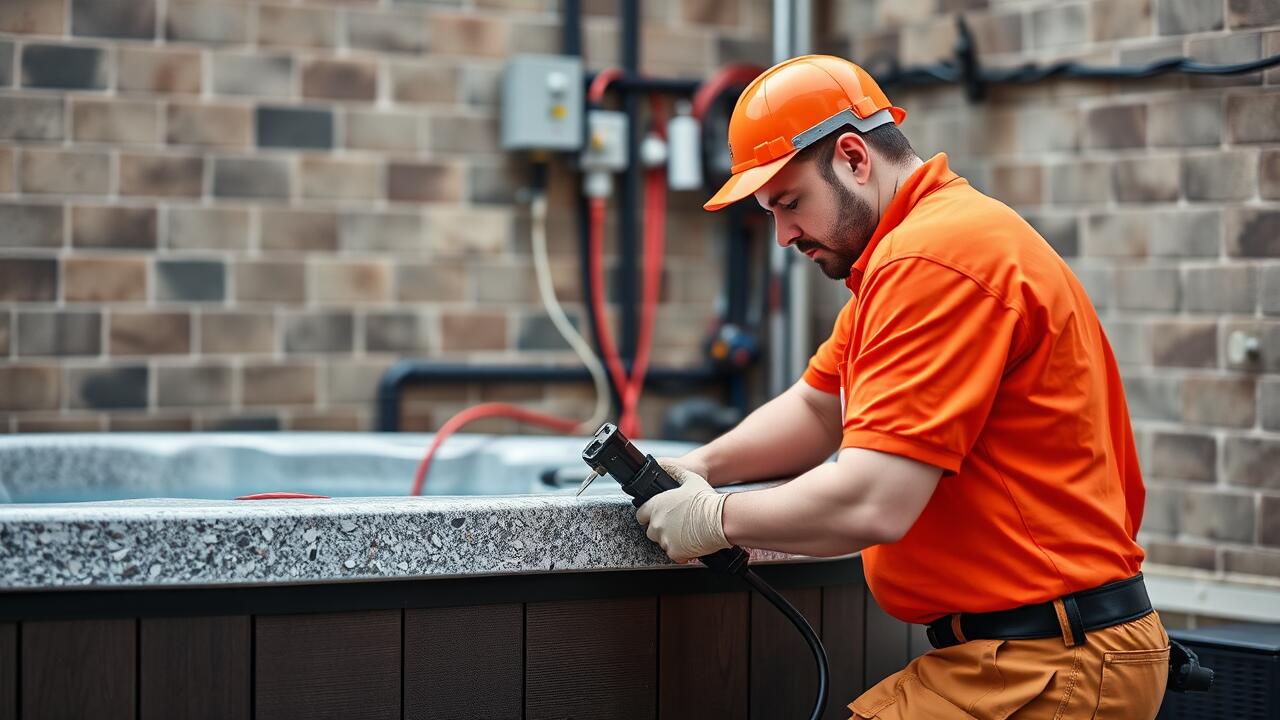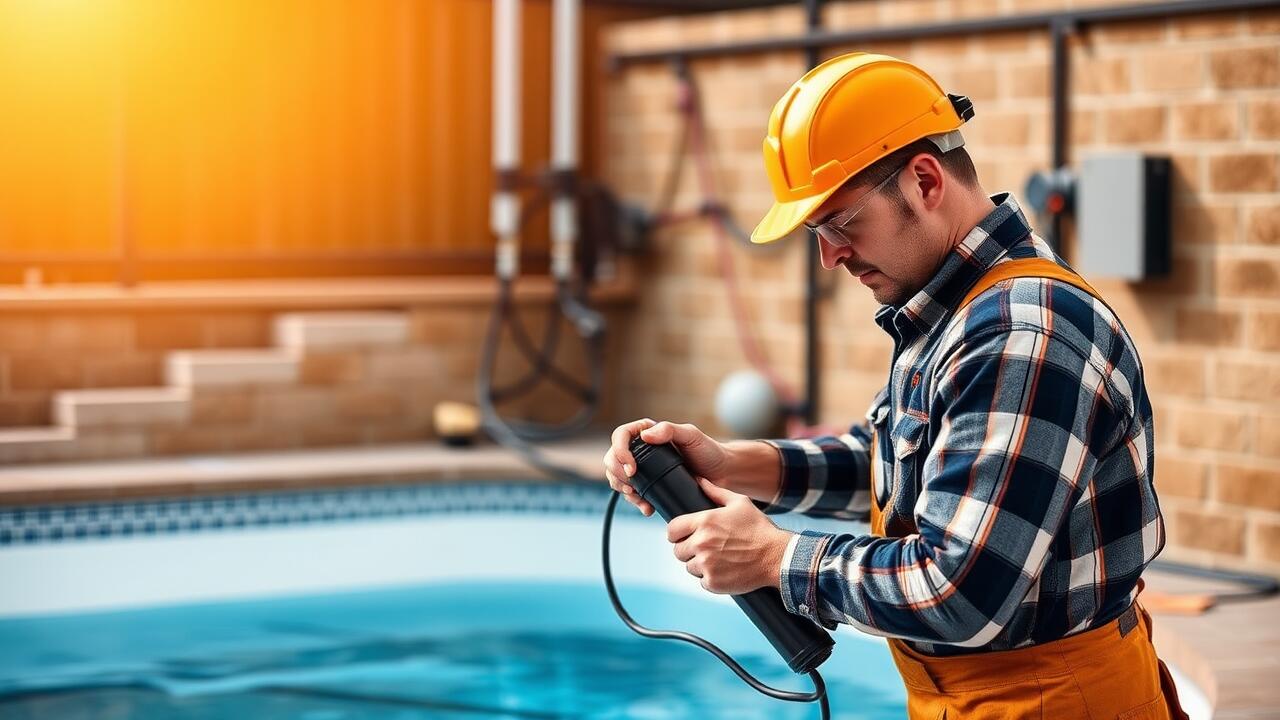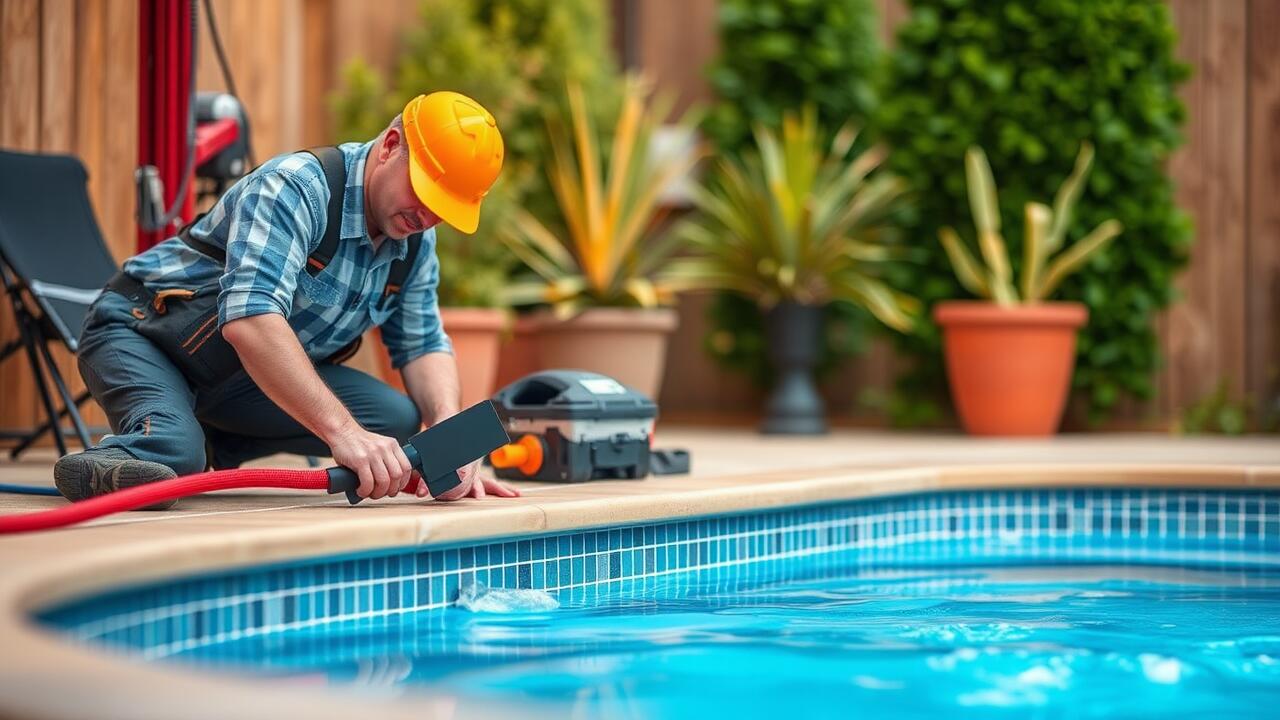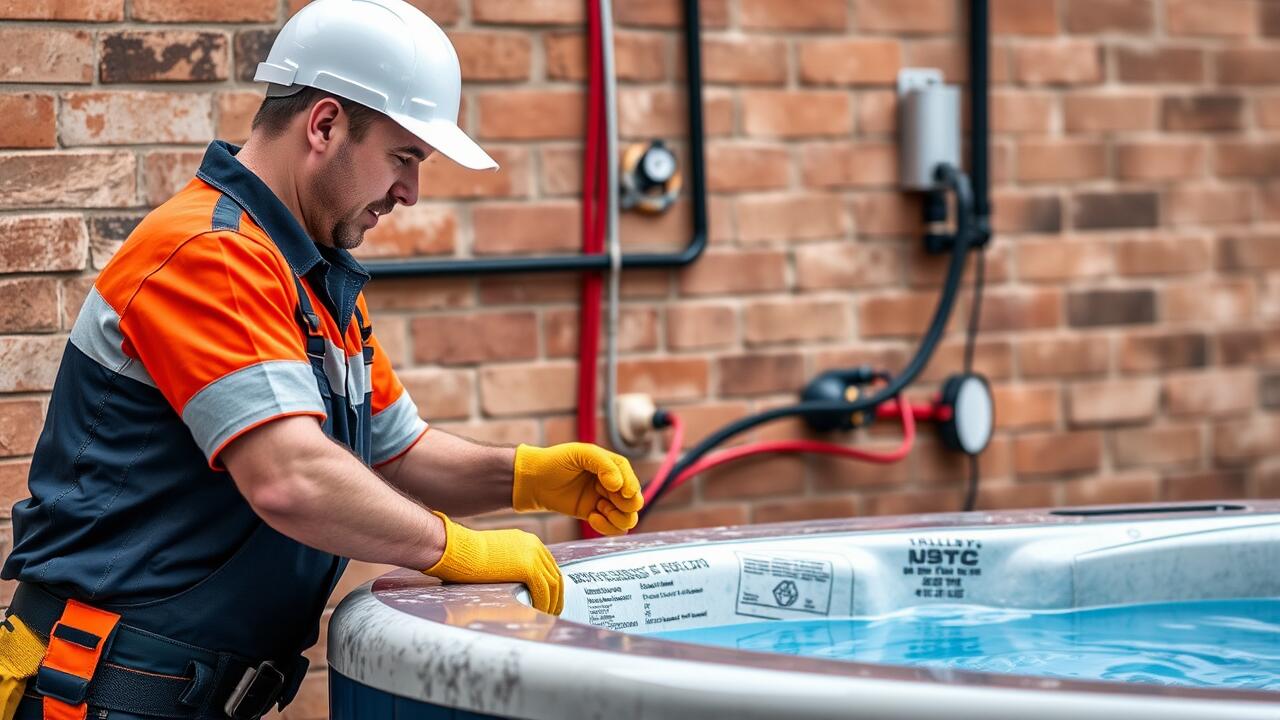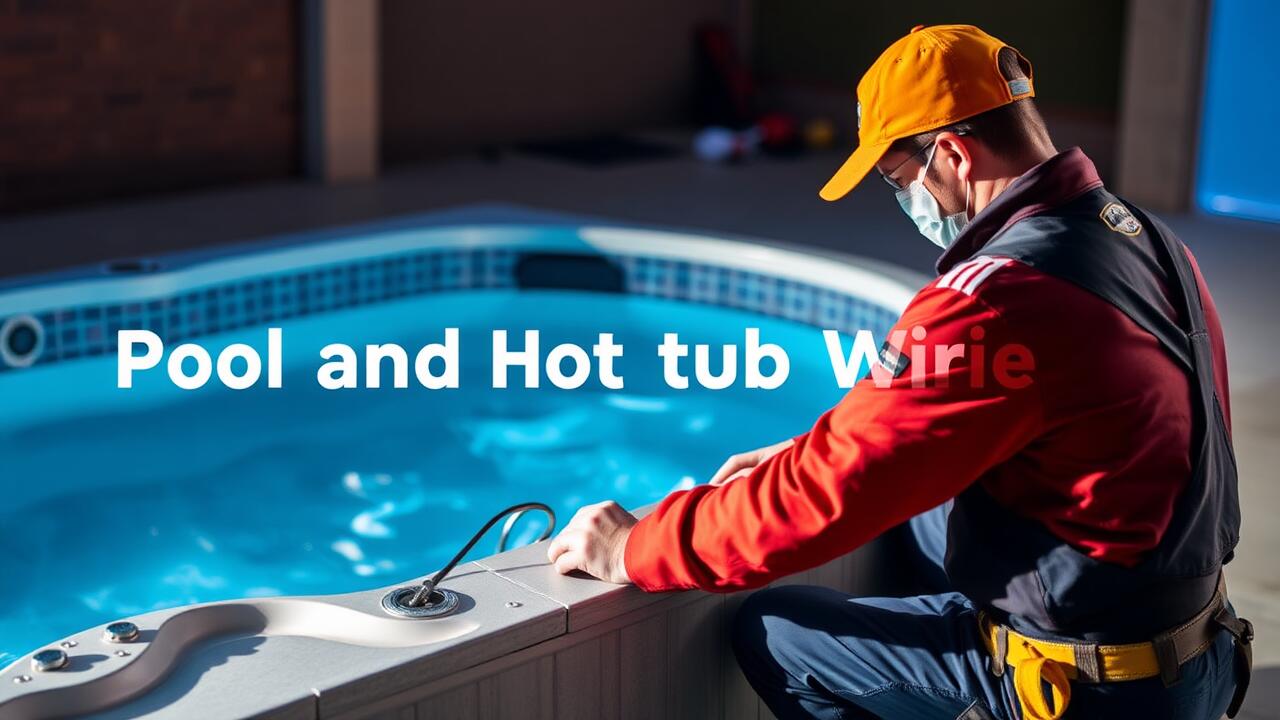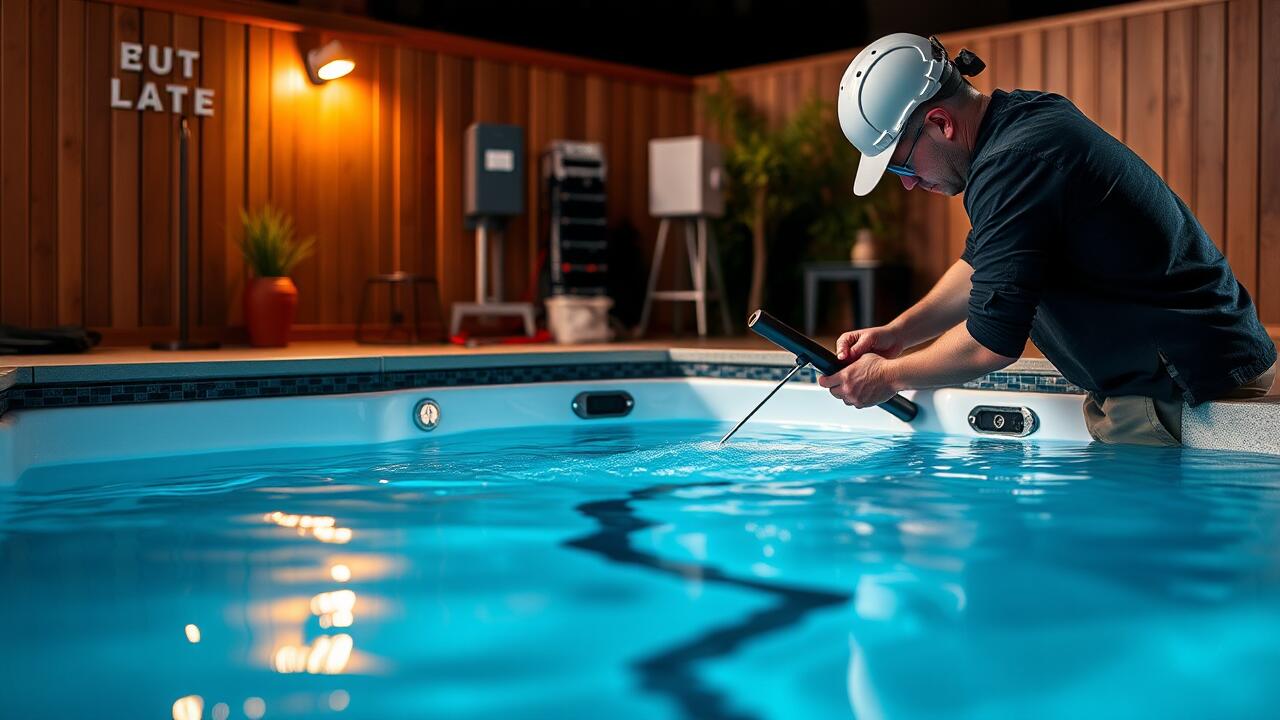
Local Codes and National Standards
Local codes and national standards play a crucial role in ensuring safety standards for pool and hot tub installations across the United States. Organizations like the National Fire Protection Association (NFPA) and local building departments develop guidelines that dictate the necessary electrical requirements. Compliance with the National Electrical Code (NEC) is paramount for any pool or hot tub installation to minimize the risk of electrical hazards. Specific regulations may vary by location, making it imperative for contractors and homeowners to understand the requirements in their area.
In River Oaks, Houston, Pool and Hot Tub Wiring must adhere to both national guidelines and local codes that govern electrical installations around water features. These regulations help ensure proper installation of Ground Fault Circuit Interrupters (GFCIs) and other safety measures, which are designed to protect users from potential electrical shock. Familiarity with these codes is essential for anyone involved in the design, installation, or maintenance of recreational water facilities.
National Electrical Code (NEC) Compliance
The National Electrical Code (NEC) sets forth specific guidelines for the installation of electrical systems, particularly regarding safety measures for pools and hot tubs. Compliance with these regulations ensures proper grounding and protection against electrical shocks. In areas like West University Place, Houston, adherence to NEC standards is crucial for both residential and commercial properties with aquatic features. These codes not only help in safeguarding users but also provide builders and electricians with a framework for safe electrical installations.
Pool and hot tub wiring in West University Place, Houston, must consider various factors, including the distance from the water and the types of equipment used. Proper installation requires integrating GFCI protection to mitigate electrical hazards, particularly in wet environments. Regular inspections are advisable to confirm ongoing compliance with NEC regulations, as electrical components may degrade over time. Understanding these requirements is essential for homeowners and contractors to maintain a safe and enjoyable environment around swimming pools and hot tubs.
Common Misconceptions about GFCI
There are several misconceptions surrounding GFCI devices that can lead to unsafe practices around pool and hot tub installations. One common belief is that GFCIs are unnecessary for above-ground pools. On the contrary, any receptacle used to supply power to a pool or hot tub must be GFCI protected, regardless of the installation type or location.
Another prevalent myth is that GFCI outlets wear out and need frequent replacement. While GFCIs do have a lifespan, they are designed to last many years when properly installed. Regular testing, especially in areas like Pool and Hot Tub Wiring in Third Ward, Houston, ensures that these safety devices are functioning correctly. Homeowners should understand that neglecting maintenance can lead to dangerous situations that fail to provide the intended protection.
Debunking Myths and Clarifying Facts
A common misconception is that GFCI protection is unnecessary for outdoor pools and hot tubs. Many believe that because these areas are frequently monitored or attended, the risk of electrical shock is minimal. However, the presence of water inherently increases the potential for dangerous electrical accidents. Ensuring GFCI devices are installed helps mitigate this risk regardless of supervision, making compliance with safety standards essential for all pool and hot tub installations.
Another myth is that GFCI devices require constant replacement or are prone to failure. While routine testing is important to maintain their reliability, well-maintained GFCIs can function effectively for several years. Homeowners in areas like Third Ward, Houston should understand that with appropriate testing and maintenance, these devices provide critical protection. Taking the time to verify their operation can significantly enhance safety in environments where Pool and Hot Tub Wiring in Third Ward, Houston is concerned.
Testing and Maintenance of GFCI Devices
Maintaining GFCI devices is essential for ensuring their reliable performance, especially in wet areas like pools and hot tubs. Regular testing of the GFCI outlets should occur monthly to confirm they function as intended. It’s a simple process; one can press the “test” button to see if the device trips. If it does not trip when tested, immediate replacement is necessary. Users should also check for any signs of wear, moisture intrusion, or damage to both the outlet and wiring connections. Keeping connections clean and secure helps to avoid potential hazards.
When it comes to Pool and Hot Tub Wiring in River Oaks, Houston, it is crucial to follow local regulation guidelines and ensure that GFCI devices are appropriately installed and maintained. Seasonal inspections by a qualified electrician can help identify any concerns and ensure that the system provides maximum protection. Keeping detailed records of maintenance and tests allows for tracking any changes in the performance of GFCI devices. Adhering to these practices ensures that safety measures remain effective and reliable over time.
Ensuring Reliable Performance
Regular testing and maintenance of GFCI devices are vital to ensure their reliable performance. Homeowners should perform tests at least once a month to verify that the GFCI outlets are functioning as intended. To conduct a test, simply push the "Test" button on the outlet. If the GFCI trips and the reset button pops out, the device is working properly. If it does not trip, it may indicate a malfunction, which necessitates replacement or further inspection by a qualified electrician.
In addition to routine testing, appropriate installation and quality of materials also play a significant role. Engaging a professional for tasks like Pool and Hot Tub Wiring in Third Ward, Houston, ensures compliance with local codes and standards, which can impact safety and performance. Selecting reliable GFCI devices that meet or exceed national standards reduces the risk of failures or electrical shock hazards. Proper installation and maintenance lead to ongoing safety and peace of mind for all users.
FAQS
What is a GFCI, and why is it important for pools and hot tubs?
A GFCI, or Ground Fault Circuit Interrupter, is a safety device that protects against electrical shock by shutting off power when it detects an imbalance between incoming and outgoing current. It is crucial for pools and hot tubs because they involve water, which increases the risk of electric shock.
Are GFCI requirements the same across all states?
No, while there are national standards set by the National Electrical Code (NEC), local codes can vary significantly. It's important to check with your local building authority to ensure compliance with specific GFCI requirements in your area.
How often should GFCI devices be tested?
GFCI devices should be tested at least once a month to ensure they are functioning properly. Regular testing helps identify any issues before they can lead to potential safety hazards.
Can I install a GFCI outlet myself, or should I hire a professional?
While some homeowners may feel comfortable installing a GFCI outlet themselves, it is generally recommended to hire a licensed electrician. This ensures the installation meets local codes and is done safely.
What should I do if my GFCI keeps tripping?
If your GFCI keeps tripping, it may indicate a problem with the circuit, appliance, or the GFCI itself. Check for any overloaded circuits or faults in connected devices. If the problem persists, it’s best to consult a qualified electrician for diagnosis and repair.
